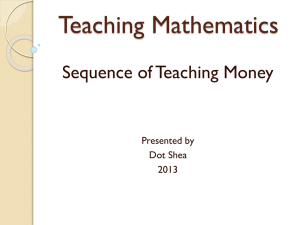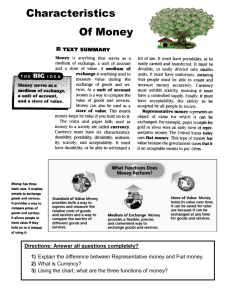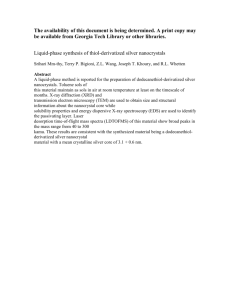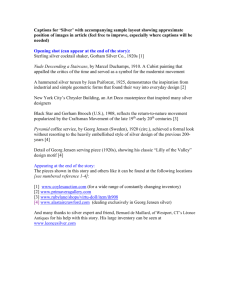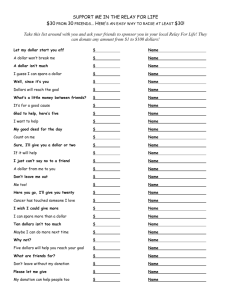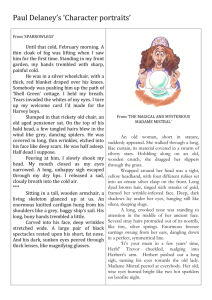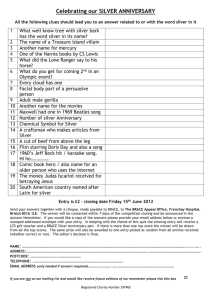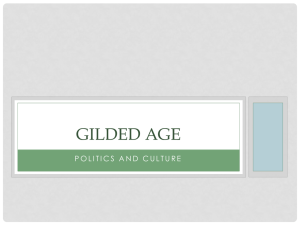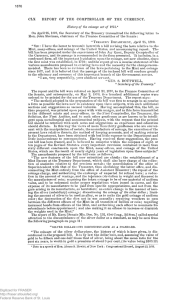View and Informational Sheet
advertisement
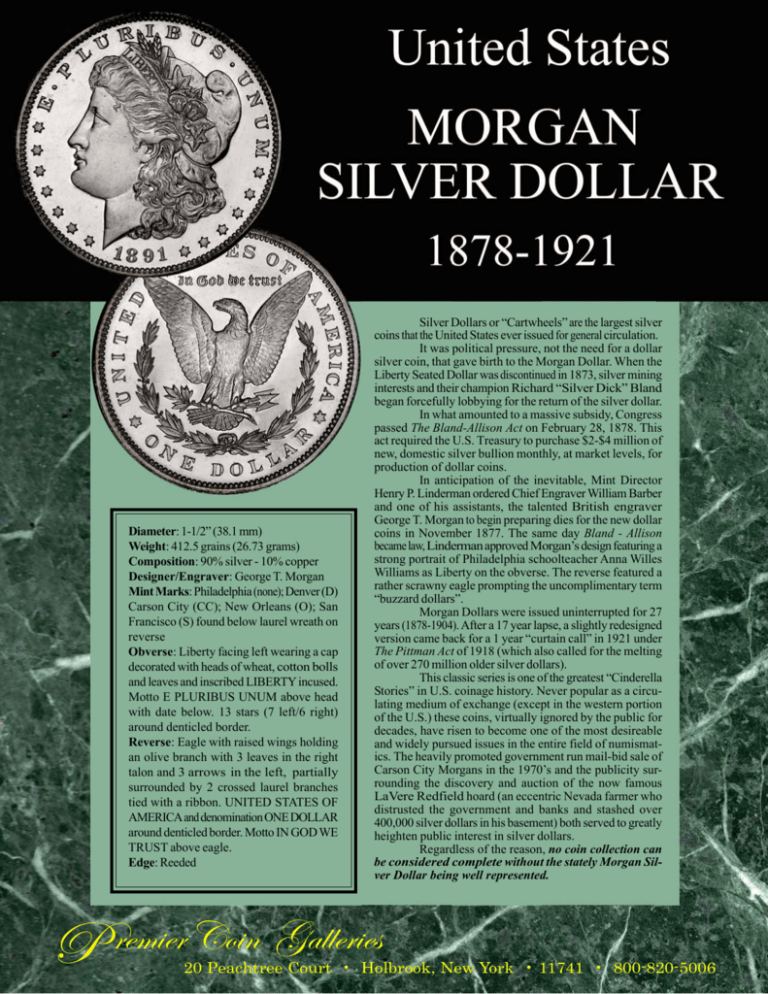
Diameter: 1-1/2” (38.1 mm) Weight: 412.5 grains (26.73 grams) Composition: 90% silver - 10% copper Designer/Engraver: George T. Morgan Mint Marks: Philadelphia (none); Denver (D) Carson City (CC); New Orleans (O); San Francisco (S) found below laurel wreath on reverse Obverse: Liberty facing left wearing a cap decorated with heads of wheat, cotton bolls and leaves and inscribed LIBERTY incused. Motto E PLURIBUS UNUM above head with date below. 13 stars (7 left/6 right) around denticled border. Reverse: Eagle with raised wings holding an olive branch with 3 leaves in the right talon and 3 arrows in the left, partially surrounded by 2 crossed laurel branches tied with a ribbon. UNITED STATES OF AMERICA and denomination ONE DOLLAR around denticled border. Motto IN GOD WE TRUST above eagle. Edge: Reeded Silver Dollars or “Cartwheels” are the largest silver coins that the United States ever issued for general circulation. It was political pressure, not the need for a dollar silver coin, that gave birth to the Morgan Dollar. When the Liberty Seated Dollar was discontinued in 1873, silver mining interests and their champion Richard “Silver Dick” Bland began forcefully lobbying for the return of the silver dollar. In what amounted to a massive subsidy, Congress passed The Bland-Allison Act on February 28, 1878. This act required the U.S. Treasury to purchase $2-$4 million of new, domestic silver bullion monthly, at market levels, for production of dollar coins. In anticipation of the inevitable, Mint Director Henry P. Linderman ordered Chief Engraver William Barber and one of his assistants, the talented British engraver George T. Morgan to begin preparing dies for the new dollar coins in November 1877. The same day Bland - Allison became law, Linderman approved Morgan’s design featuring a strong portrait of Philadelphia schoolteacher Anna Willes Williams as Liberty on the obverse. The reverse featured a rather scrawny eagle prompting the uncomplimentary term “buzzard dollars”. Morgan Dollars were issued uninterrupted for 27 years (1878-1904). After a 17 year lapse, a slightly redesigned version came back for a 1 year “curtain call” in 1921 under The Pittman Act of 1918 (which also called for the melting of over 270 million older silver dollars). This classic series is one of the greatest “Cinderella Stories” in U.S. coinage history. Never popular as a circulating medium of exchange (except in the western portion of the U.S.) these coins, virtually ignored by the public for decades, have risen to become one of the most desireable and widely pursued issues in the entire field of numismatics. The heavily promoted government run mail-bid sale of Carson City Morgans in the 1970’s and the publicity surrounding the discovery and auction of the now famous LaVere Redfield hoard (an eccentric Nevada farmer who distrusted the government and banks and stashed over 400,000 silver dollars in his basement) both served to greatly heighten public interest in silver dollars. Regardless of the reason, no coin collection can be considered complete without the stately Morgan Silver Dollar being well represented. P remier Coin Galleries 20 Peachtree Court • Holbrook, New York • 11741 • 800-820-5006
